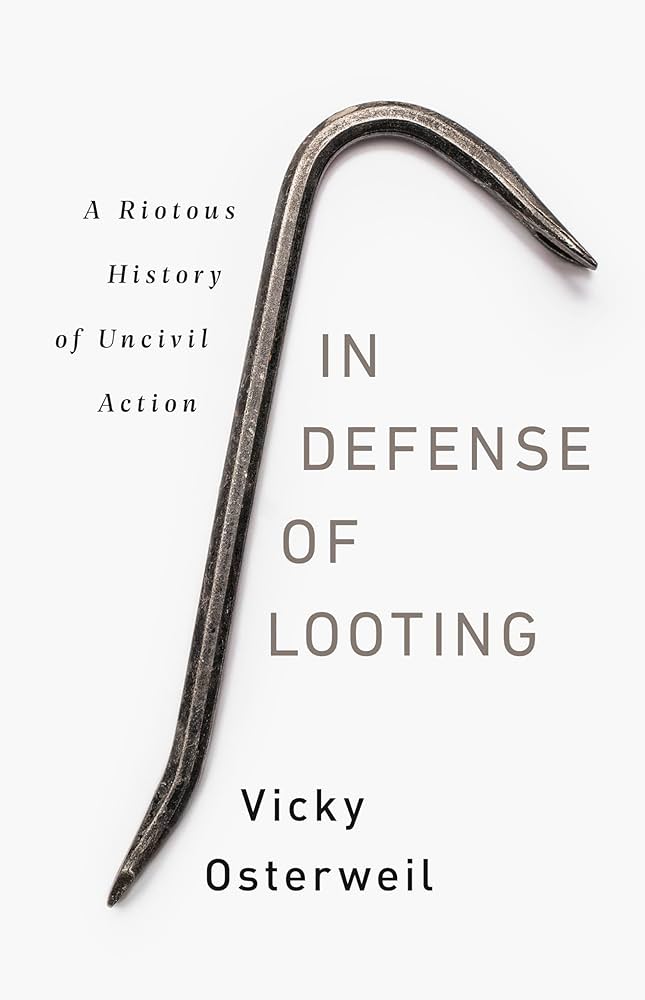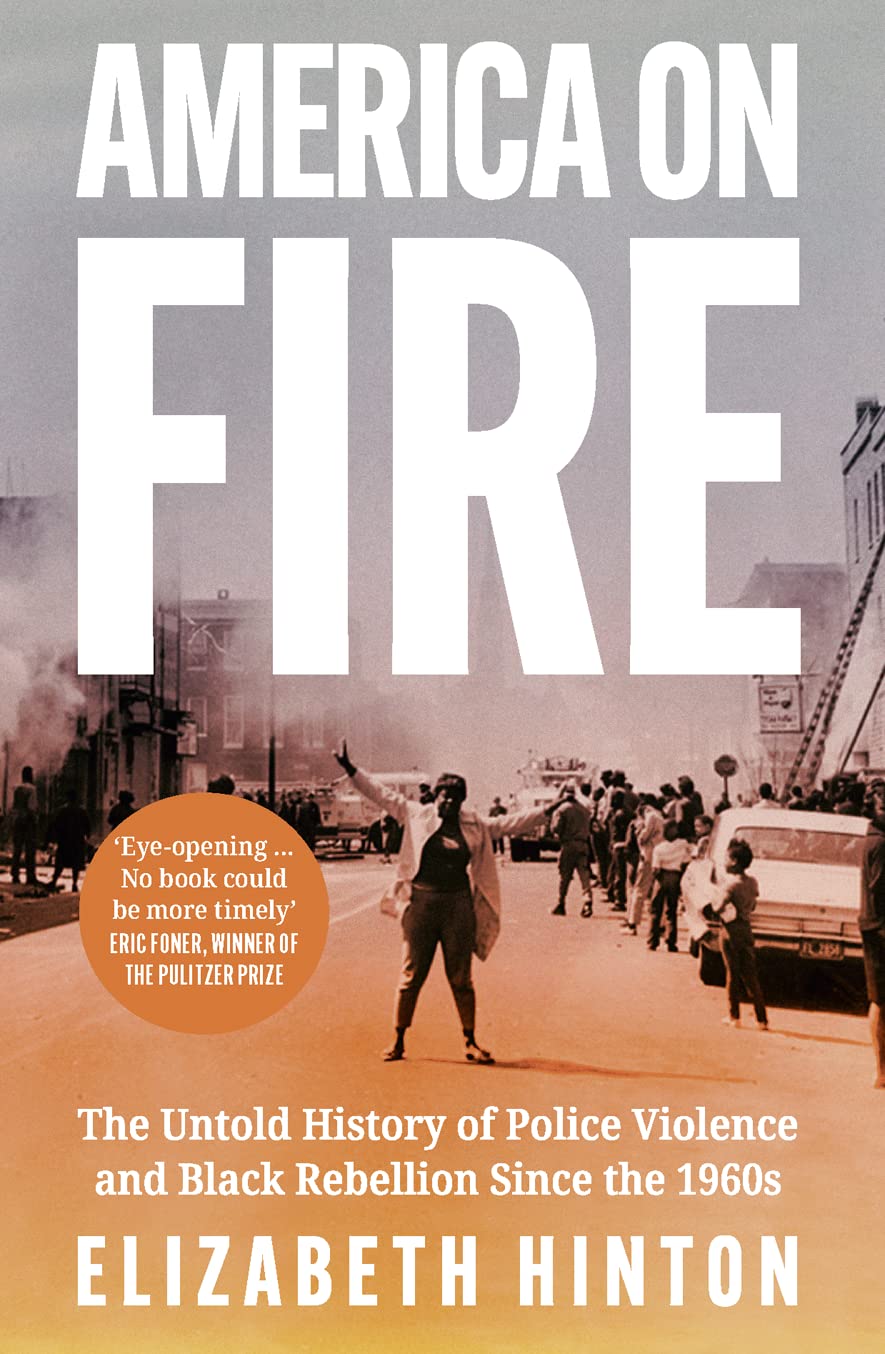Two recent books, completed on either side of the 2020 uprising, enable us to consider the relationship between the present conjuncture and past Black revolts. Elizabeth Hinton’s America on Fire: The Untold History of Police Violence and Black Rebellion Since the 1960s and Vicky Osterweil’s In Defense of Looting: A Riotous History of Uncivil Action argue that the Black freedom struggle reached its apex during the urban uprisings of the 1960s and early 1970s. Each author seeks to do more than simply generate sympathy for rioters by insisting on the righteousness and effectiveness of rebellion. These improvised acts of violence and looting do not fit the dominant narrative of a “nonviolent” civil rights. Neither do they make sense as the disciplined violence of armed struggle most closely associated with the Black Panther Party in this period. Read together, these books may be the spark of something new: what we might call a political history of the brick.
These books are powerful ammunition for today’s anti-racist scions, dry powder for the next phase of battle. And yet, each raises a vexing question: As twenty million people took to the streets in 2020, why did so few pick up a brick? And would the movement to which they belong be better off if they had?
In Defense of Looting makes an impassioned case for the righteousness and efficacy of violence. The book grew out of the flames of Ferguson—“the most militant sustained struggle” since the Civil Rights Movement. In August 2014, Osterweil wrote an essay of the same title for The New Inquiry arguing for “not-non-violent” tactics. The book-length version could not be timelier. According to a postscript, Osterweil submitted her manuscript on May 29, 2020. The day before, protesters set a Minneapolis police station on fire. “I have no idea what political world this book will emerge into,” Osterweil marvels, “and that’s beautiful.”
The book is aimed less at conservatives—whose allegiance to law-and-order is unwavering—than to liberals who claim to be on the side of justice. Riots, to use words deployed by liberals since Lyndon Johnson, are the products of “outside agitators,” opportunism, and basic greed. Osterweil’s introduction attacks this view that looting is inherently wrong and politically unwise. If rioters are not part of the movement, “why do they appear again and again in liberatory uprisings?” Rather, the left should heed “the wisdom and power of the Black revolutionary tradition.” “The future is ours to take,” she urges. “We just need to loot it.”

